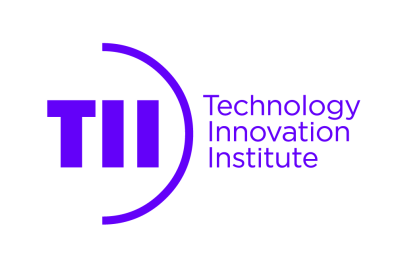Our heartiest congratulations to four of our researchers from the Technology Innovation Institute’s (TII) AI and Digital Science Research Center (AIDRC) and Autonomous Robotics Research Center (ARRC) who have joined the prestigious ilk of the world’s top 2% of scientists.
Prof. Mérouane Debbah, Chief Researcher, Dr. Daniel Benevides da Costa and Prof. Dr. George C. Alexandroupoulos, both Principal Researchers at AIDRC, as well as Prof. Enrico Natalizio, Vice President of the ARRC, joined the list of the World’s Top 2% Scientists released by Elsevier BV, Stanford University, USA in October this year. The AIDRC trio have made the cut on both lists – one that looks cumulatively at data for 2021 and the second, focusing on career-wide achievements, with Prof. Natalizio listed on the former.
The study led by scientists from Stanford University includes a list comprising the top 2% of scientists in various scientific fields. The list, created by Professor John P. A. Ioannidis from Stanford University and his research team, contains a publicly available database of 100,000 top scientists that provides standardized information on citations, h-index, co-authorship-adjusted hm-index, citations to papers in different authorship positions, and a composite indicator.
The career-long data has been updated to the end of the calendar year 2021 and looks at the c-score of the top scientists (with or without self-citations), or a percentile rank of 2% or above in the sub-field. This year’s lists feature 195,605 scientists in the career-long database and 200,409 scientists in the single recent year dataset.
Earlier this year, Prof. Debbah made it to 180th spot on a list of the top 1,000 researchers in the world in Electronics and Electrical Engineering, published by Research.com, a leading academic research portal that ranks the world’s top scientists across different categories and serves as a global benchmark. He also received the accolade for the 2022 AI 2000 Most Influential Scholar in Internet of Things for his outstanding contributions in the field between 2012 and 2021.
Dr. da Costa holds several prestigious positions on the editorial board of reputable journals and was part of the organizing committee of several international conferences. He has authored 204 journal papers, 138 conference papers, and four book chapters to date, and has to his credit more than 7,000 citations (Google Scholar database). He was the recipient of several awards and ranked in the World's Top 2% Scientists from Stanford University in 2020 and among 1% Top Scientists in the world in the broad field of Electronics and Electrical Engineering. He is currently a Distinguished Speaker of the IEEE Vehicular Technology Society.
Prof. Alexandropoulos focuses on algorithmic design, optimization, and performance analysis for wireless communication networks with extensive expertise in industrial and EU-funded research and innovation projects. With contributions to signal processing and machine learning approaches for the physical and medium access layers of the IEEE 802.11 standards' family and work in 5G-Advanced and 6G networks to his credit, he received the IEEE Communications Society Best Young Professional in Industry Award 2018, the EURASIP Best Paper Award of the Journal on Wireless Communications and Networking 2021, the IEEE Marconi Prize Paper Award in Wireless Communications 2021, and a Best Paper Award from the IEEE Global Communications Conference (GLOBECOM) 2021.
Finally, Prof. Natalizio is the Vice President of ARRC and a Full Professor with the LORIA laboratory at the Université de Lorraine (France). His research interests include UAV, robot and sensor communications with applications in networking technologies for disaster management and infrastructure monitoring, as well as IoT privacy and security. He is currently an associate editor of Elsevier Vehicular Communications and Computer Networks.
Congratulations to our four esteemed researchers! We are proud to be a part of your success stories.



